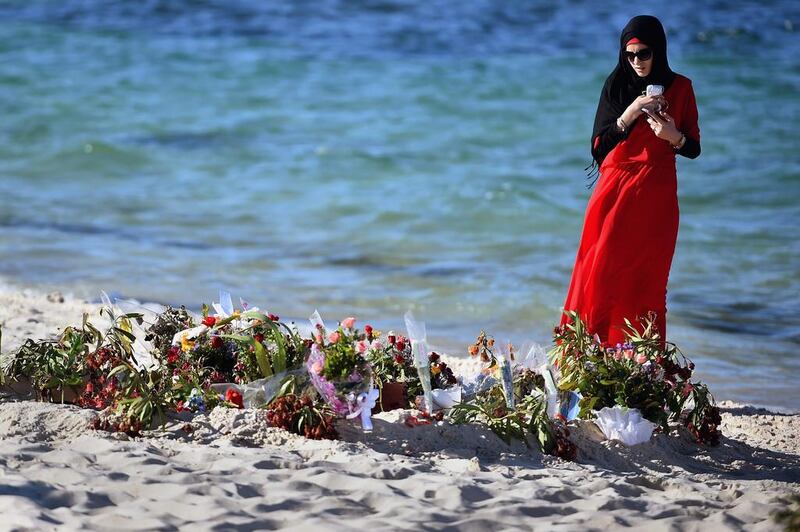Britain needs to overhaul its response to terrorism abroad with many victims feeling abandoned and forced to wait months for treatment for the traumatic effects of attacks, a study found on Wednesday.
The first nationwide survey of victims of terrorism found that nearly half of people caught up in overseas incidents believed that the response from the UK government had been poor, according to Survivors Against Terror, a group that represents victims.
The report’s authors cited the response of the Foreign Office to the ISIS attack on a hotel in Sousse, Tunisia in 2015 when a solitary gunman killed 38 people, including 30 Britons.
The universal view among survivors of the Sousse attack was that the Foreign Office was “not capable and was not competent”, said Brendan Cox, whose MP wife was murdered by a right-wing extremist in 2016. Some families had been incorrectly told by officials that their relatives had survived, he said.
One anonymous victim said in the survey that they had been on the beach with a friend who was killed. “I had to identify her at the mortuary that day,” the witness said. “As I wasn’t physically hurt, I felt as though I didn’t matter. It took nearly a year before I got any help for post-traumatic stress disorder.”
The report said that victims were also struggling to get treatment to cope with the aftermath of terrorist attacks. There was also widespread disquiet over the lack of financial support and legal backing to pursue claims for compensation.
The group said that one mother was forced to reveal her daughter’s plight on television to get help. Other children had harmed themselves during months-long waits for mental health care.
______________
Read more:
[ Europe’s divisive politics play out in the drive for peace in Libya ]
[ Libya planning to extradite Manchester bomber’s brother to the UK ]
______________
The group, which carried out a survey of about 270 people, concluded that victims were “routinely let down” by the agencies who were supposed to help.
“This survey has unearthed shocking stories that seem increasingly like the norm - survivors forced to pay for their own treatment, children denied help ending up harming themselves and long waiting lists for people who urgently need support,” said the group’s chair Charlotte Dixon Sutcliffe.
The survey found that three quarters of those people questioned wanted a dramatic improvement in mental health services.
Travis Frain, who was injured in one of the terrorist attacks last year when he was knocked down by an extremist in a vehicle on Westminster Bridge in London, had to wait nearly three months for an appointment with Britain’s health service.
The delays came despite pleas for swifter treatment from specialist advisers and his doctor. When he finally got an appointment, he was told by a specialist to drink a warm glass of milk to help him sleep better.
The group is due to hand over details of the survey to UK prime minister Theresa May on Wednesday to highlight the problems after five terrorist attacks in the UK last year, which left 36 people dead and hundreds wounded.
“The death or serious injury of a loved one is hugely distressing, and our staff across the globe work with dedication and empathy to support British nationals,” said the Foreign Office in a statement.
“We have over 750 consular staff in 268 locations around the world and in 2017 they assisted British nationals in over 30,000 cases, with nearly 4,000 of those cases being deaths abroad.”
The report came as the Foreign Office came under pressure to do more to secure compensation from Libya for victims of explosives and other weaponry supplied to Irish dissident groups by the regime of Muammar Qaddafi.
The Qaddafi regime from the early 1970s to the 1990s supplied the Irish Republican Army with guns, ammunition and up to 10 tonnes of the Semtex explosive that was used in a bombing campaign from the late 1980s in the UK.
The UK government has refused to step in to take over compensation claims on behalf of families of the dead and injured in those attacks. It said the continued political division of Libya and the fact that £12 billion (Dh56.3bn) of Libyan assets were frozen in UK banks made it hard to resolve the case.
MPs on the Northern Ireland committee on Tuesday accused the government of “treading water” over the claims.
Foreign Office minister Alistair Burt said: “It’s not a box-ticking exercise … on the other hand it’s not producing the speed of answer that anyone would have wanted in the circumstances.”






